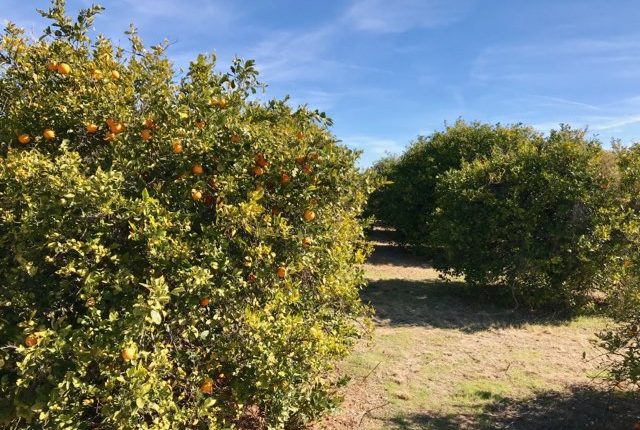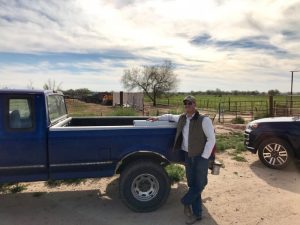
Local U-Pick Farm, a Sweet Taste of Fresh Citrus
By Marina DeWit, Region 9 Advocate
The increasing interest in how our food is produced and delivered is giving rise to “U-Pick” farms that are becoming a more popular activity for consumers of all ages. This farm-to-table strategy emphasizes customers doing the harvesting themselves, appealing to customers who might prefer to select their own high-quality or vine-ripened produce at lower prices. Typically, small and privately-owned, U-Pick farms invite the public to collect their own produce from the field, grove, or orchard. Farms converted to a pick-your-own system have drastically reduced required labor for harvesting, have eliminated post-harvesting tasks (sorting, storage, packing, and shipping), and have income in hand when the consumer leaves the farm. Some disadvantages include insurance liability increases, time-consuming advertising, location, and staying open for extended hours and weekends.
Justice Brothers Ranch in Waddell has been the longest continually operated orchard in the state of Arizona for over 90 years. Besides citrus trees, they raise cows, alfalfa, cotton, potatoes, beans, and other crops. The family has tried growing a little bit of everything over the years, looking for ways to earn a living off 400 acres of land. Certified organic, they produce commercial citrus that is sold in small supermarket chains, farmer’s markets, and to small local vendors.

A few years ago, the youngest adult in the Justice Family, Selwyn, took over what was formerly known as the University of Arizona Maricopa County Citrus Experiment Station in Surprise, AZ. The orchard grows over 75 varieties of pesticide-free fresh citrus, including a number of varieties of oranges, grapefruit, lemons, and more. The 42-acre property became a trial of the U-Pick concept for the Justice Family. From the 35 acres of citrus, they can collect 200 to 235 tons of fruit per season, while the entire operation is managed with one full-time worker, Selwyn, and two part-time employees.
Once the citrus season of December through March is over, Selwyn looks for other ways to entice customers to visit his orchard and make some profit. Last fall was the first time Selwyn organized a pumpkin patch where families could pick locally grown pumpkins, play some games, and run through the orchard. Without charging an entrance fee and only selling pumpkins, it was the most profitable activity in the short period of time.
Even though the U-Pick orchard land is leased from the University of Arizona at a reasonably low annual price and only three people work there, the biggest expense is water. In winter, each tree needs about 11 gallons of water per month with hopes of some rain here and there. In summer, when temperatures can reach 120 degrees, each tree receives 87 gallons of water every 10 days. However, it is becoming a more difficult task to obtain water in the desert, potentially reducing the amount of land to grow crops on. On January 31, 2019, the governor of Arizona signed the Drought Contingency Plan to stop reservoirs from plunging to critical levels and reduce the state’s use of water to prepare for future shortages. Arizona sources nearly 40 percent of its water from the Colorado River. If Lake Mead continues to drop and a shortage is declared next year, the state would lose 18 percent of that water, shrinking the amount that flows through the Central Arizona Project canal. If California, Nevada, and the federal government all sign on, the Drought Contingency Plan will govern water cutbacks that could begin as soon as next year. The drought plan would help reduce the effects of the cutbacks on many water users, including farmers.
According to Mr. Justice, no one gets into farming to get rich. He loves working on the land just like his 71-year-old father does, as well as his grandfather and his great-grandfather did before him. He just hopes that when his seven-year-old daughter is an adult, she can still have the farm to raise her family and grow business on.
Marina DeWit serves as the Region 9 Advocate for the SBA Office of Advocacy, representing small businesses in Arizona, California, Nevada, Hawaii, and the Pacific Islands of Guam, American Samoa, Commonwealth of the Northern Mariana Islands, and Trust Territories. DeWit works with small business owners, state and local governments, and small business associations to bring the voice of Region 9 to Washington DC. She can be reached at Marina.DeWit@sba.gov.
